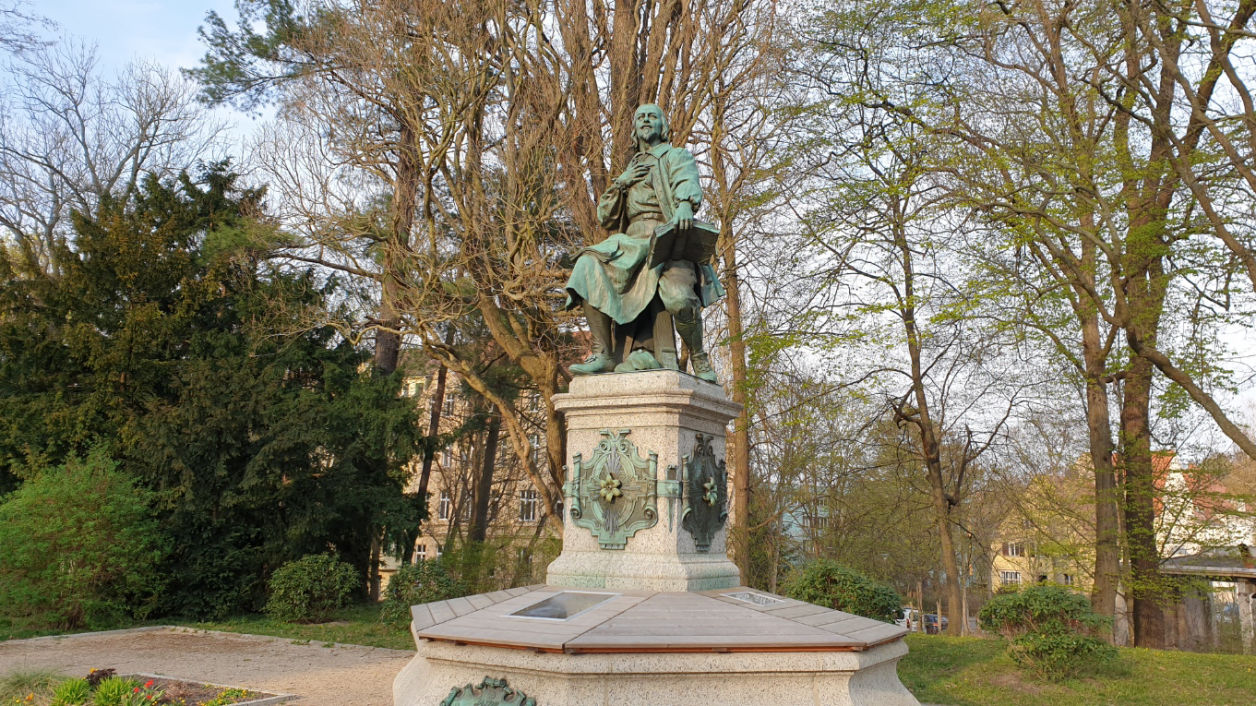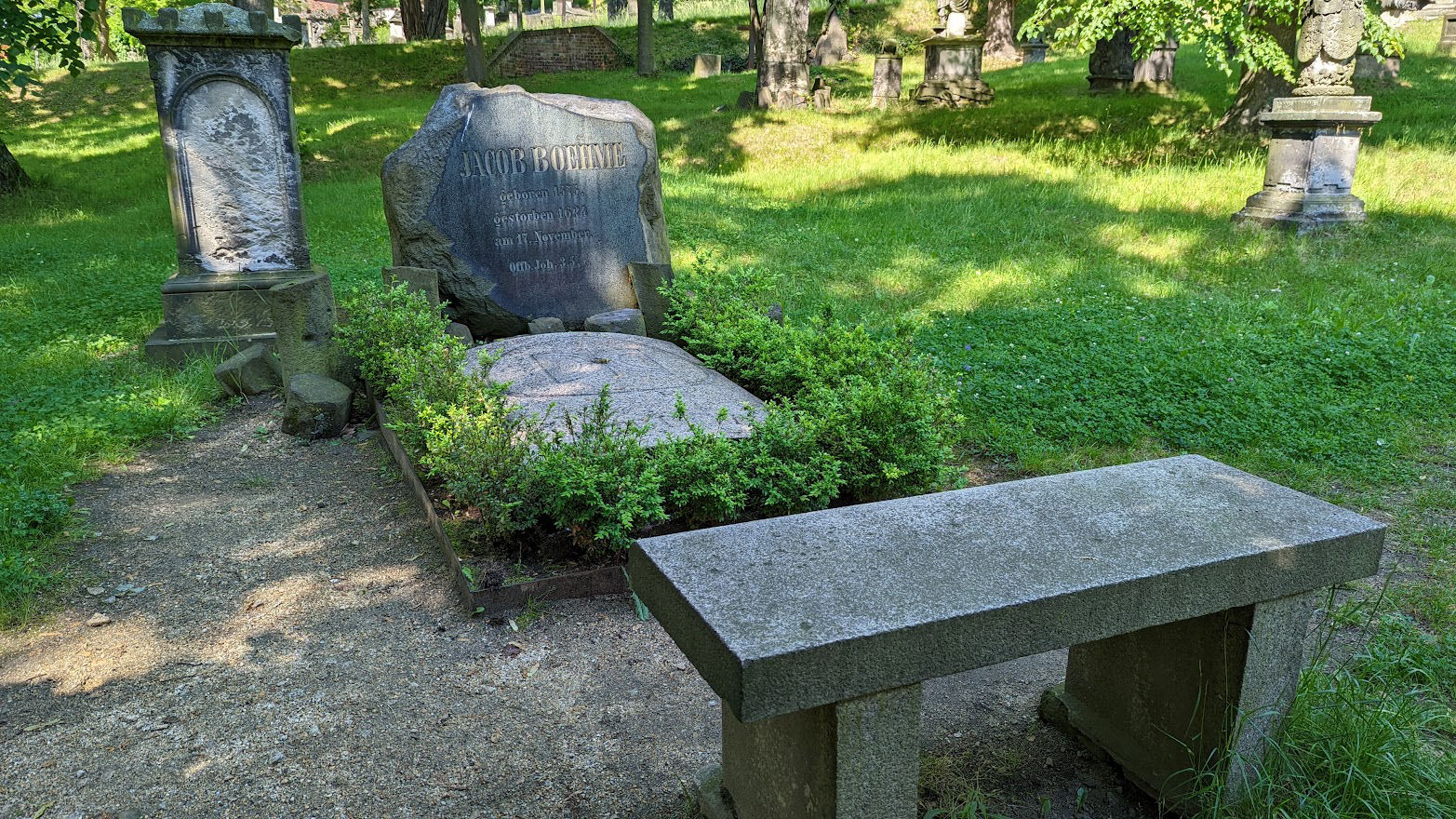
Jakob Böhme Monument, Park of Peace, Görlitz
Jakob Boehme (1575 – 1624), the shoemaker from Görlitz, but above all theosophist and mystic, belongs to the most famous citizens of our city.
1575 / Jakob Boehme was born in Alt-Seidenberg (today Stary Zawidów, Poland) as the fourth of five children of a relatively wealthy farmer.
1599 / After learning the craft of shoemaking, travelling and journeyman years, Boehme becomes master and citizen of Görlitz this year. He marries Katharina Kuntzschmann, the 19-year-old daughter of a Görlitz butcher, buys a house in front of the Neißetor (today Daszynskiego street in Zgorzelec, Poland) and rents a shoe bench in the sub-market. In the following years four sons are born to the couple.
1610 / After Boehme had already sold his first house again in 1608, he now bought his second house directly on the bridge and at the end of the town and was therefore more conveniently situated for his trade. The house was probably destroyed in the 30 year war. The last house on the property was demolished in 1905 as part of the construction work for the new Old Town Bridge.

Jakob Böhme Monument, Park of Peace, Görlitz
1612 / Up to this point Böhme led an inconspicuous life. But now he wrote the "Aurora", his most famous work. His craft gradually fades into the background until he gives it up completely and sells his shoe bench. The typeface was quickly distributed by sponsors. At the instigation of the Görlitz senior pastor Gregor Richter, an investigation against Böhme is initiated. The city council under Bartholomäus Scultetus merely warns Böhme, imposes a ban on writing and confiscates the original of the "Dawnbreak". In the following years Boehme did not publish any writings, but developed his theosophical ideas by studying paracelsic and alchemistic books and communicating with like-minded people. He met with doctors, humanists and interested nobles. In order to feed the family, Boehme and his wife ran a yarn trade, which was associated with many journeys.
1618 / Boehme starts writing again at the insistence of his friends. The outbreak of the 30-year war had brought long-distance trade to a standstill anyway and restricted Boehme's trading activities. Under the impression of the war, Böhme now wants to be exclusively philosophical. He sees the old ecclesiastical conditions as decaying and sets himself the goal of reviving Christianity through a new great Reformation. To this end he tried to create a congregation of like-minded people, wrote book after book and became increasingly dependent on his patrons.
1624 / After the appearance of a printed script by Boehme, there is another argument with Gregor Richter. Böhme dies on 16 November in Görlitz. He is buried at the Nikolaifriedhof. The deacon is forced by the council to deliver the eulogy. The grave cross is desecrated after only a few days. Catherine survives her husband only by one year.

Best AI Website Creator